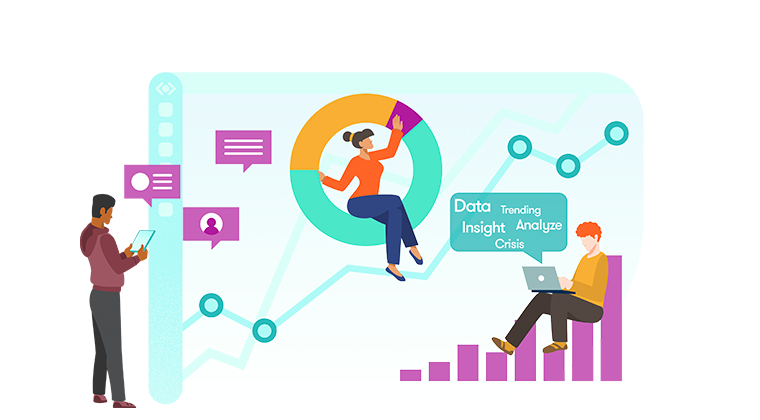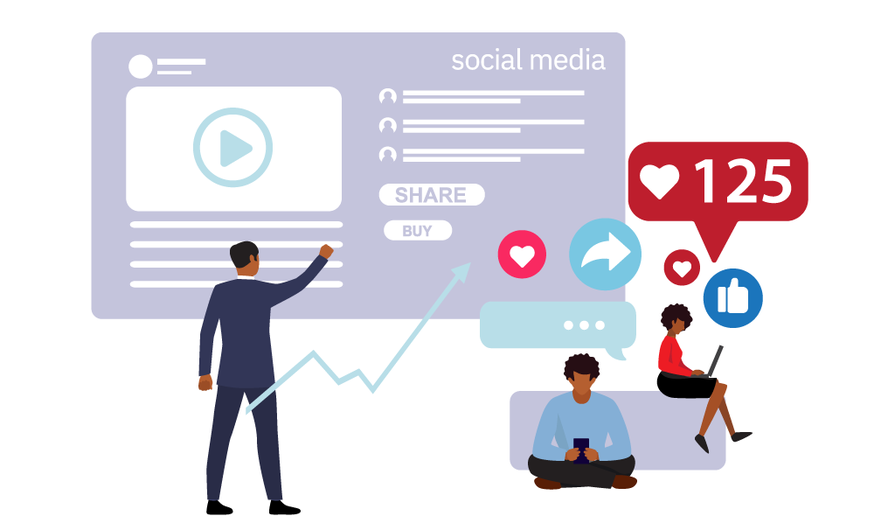In today’s fast-paced digital world, social media has become an integral part of our lives. Whether for personal use or business promotion, social media platforms offer endless opportunities for connection and engagement. However, with the vast amount of content circulating online, it can be overwhelming to keep track of your digital presence. This is where social media monitoring online comes into play, helping individuals and businesses effectively manage their online interactions and reputation.
Understanding Social Media Monitoring Online

Social media monitoring, also known as social media listening or social media intelligence, involves tracking online conversations to understand what people are saying about a brand, individual, or industry. It goes beyond just keeping an eye on your mentions; it’s about analyzing trends, gathering insights, and making informed decisions to enhance your online presence.
Why is Social Media Monitoring Important?
Social media monitoring provides valuable insights into customer sentiments, preferences, and market trends. By monitoring social media platforms, businesses can:
1. Enhance Customer Engagement
Monitoring social media allows businesses to respond promptly to customer queries, feedback, and complaints. Engaging with customers in real-time fosters a positive relationship, building brand loyalty.
2. Manage Reputation
By tracking online mentions, businesses can address negative comments or reviews promptly, mitigating potential reputation damage. It enables proactive reputation management.
3. Understand Market Trends
Social media monitoring helps businesses stay updated with the latest industry trends, allowing them to adapt their strategies to meet evolving consumer demands.
4. Competitive Analysis
Analyzing competitors’ social media activities provides insights into their strengths and weaknesses, helping businesses identify opportunities for differentiation.
Choosing the Right Social Monitoring Tools
Several tools are available to facilitate social media monitoring, each offering unique features. When selecting a tool, consider factors such as real-time tracking, sentiment analysis, and customizable reporting to align with your specific needs.
Best Practices for Effective Social Media Listening
1. Define Your Goals
Clearly define your objectives for social media monitoring. Whether it’s improving customer satisfaction, tracking brand mentions, or identifying influencers, having specific goals guides your monitoring efforts.
2. Monitor Multiple Platforms
Social media monitoring should cover various platforms, including Facebook, Twitter, Instagram, LinkedIn, and relevant forums. Each platform offers distinct audience demographics and behaviors.
3. Utilize Sentiment Analysis
Utilize sentiment analysis tools to understand the tone of online conversations. Identifying positive, negative, or neutral sentiments helps in tailoring responses accordingly.
4. Regularly Analyze Data
Regularly analyze the gathered data to identify patterns, trends, and areas for improvement. Data-driven insights empower businesses to make informed decisions.
Conclusion
In conclusion, social media monitoring online is a powerful tool that not only helps businesses manage their online presence but also enhances customer satisfaction and loyalty. By understanding what customers are saying and adapting strategies accordingly, businesses can thrive in the competitive digital landscape. If you’re interested in exploring how social media monitoring can transform your online presence, request a demo from AIM Technologies today.
Frequently Asked Questions
Q1: What is social media monitoring?
- Social media monitoring involves tracking online conversations to understand what people are saying about a brand, individual, or industry. It provides valuable insights into customer sentiments and market trends.
Q2: Why is social media monitoring important for businesses?
- Social media monitoring is essential for businesses as it enhances customer engagement, manages reputation, understands market trends, and enables competitive analysis.
Q3: What platforms should businesses monitor?
- Businesses should monitor various platforms, including Facebook, Twitter, Instagram, LinkedIn, and relevant forums, to cover diverse audience demographics.
Q4: How can sentiment analysis benefit social media monitoring?
- Sentiment analysis helps in understanding the tone of online conversations, distinguishing between positive, negative, and neutral sentiments. It guides businesses in tailoring responses effectively.
Q5: What are the key best practices for effective social media monitoring?
- Key best practices include defining clear goals, monitoring multiple platforms, utilizing sentiment analysis, and regularly analyzing data to identify patterns and trends.


